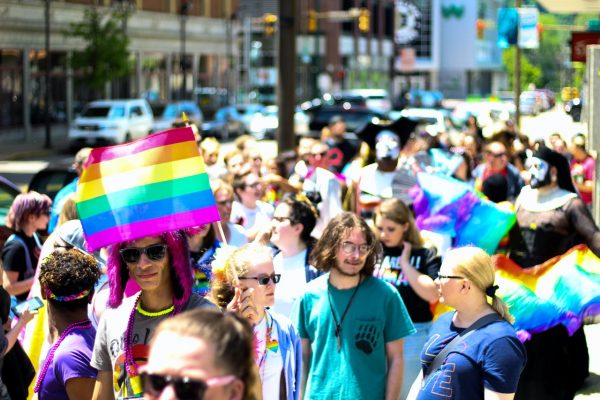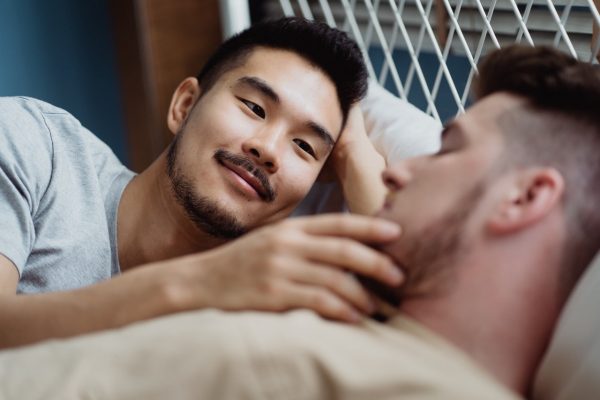Note: The Hobbit here will refer to J. R. Tolkien’s novel “The Hobbit (or: There and Back Again)” rather than the recent movie trilogy based on the novel. Dwarves here will refer to a race of peoples in “The Hobbit (or: There and Back Again),” not individuals with Dwarfism.
“What? A furrier–” Bilbo Baggins of J. R. Tolkien’s The Hobbit asks after Gandalf tells him, and the rest of the party of Dwarves, that their next destination is the home of a person known as a Skin-Changer. Beorn, the Wizard explains, is a pretty cool guy, but Bilbo, in his confusion, allows what would be the equivalent of a slur–‘furrier’–escape him. Gandalf is reasonably upset: “good gracious heavens, no, No, NO!” He tells Bilbo angrily to “not be a fool . . . if [he] can help it,” tells him he must never, under any circumstances, use this word when referring to a Skin-Changer ever again. Nor should he use the words ‘Rug,’ ‘Cape,’ Tippet,’ ‘Muff,’ “nor any other such unfortunate word!” Gandalf treats ‘Furrier’ and these other unfortunate words as what they are: slurs towards Skin-Changers (Tolkien 108-9).
Beorn isn’t the stereotype Bilbo, who has presumably never met a Skin-Changer, automatically perceives him to be; a stereotype that he, like most people who have stereotypes automatically come to mind when thinking about or encountering a demographic they never have before, probably absorbed from secondhand sources–“a man that calls rabbits conies, when he doesn’t turn their skin into squirrels,” Bilbo thinks about Beorn. Perhaps this all sounds a bit cryptic because of Tolkien’s fantastic world-building abilities; these, of course, are not slurs anywhere other than Middle Earth, the world The Hobbit (and the Lord of the Rings book Trilogy) takes place in. They are slurs nonetheless. Those sound like ordinary enough words to me, you may be thinking. But not to a Skin-Changer, like Beorn, who races in the novel–at least Bilbo and his Dwarf friends–harbor a sense of fear about; these words are probably ordinary enough in Middle Earth–as well as hurtful to Skin-Changers.
A word that is used often does not equal a word that is not offensive (because it is common). That’s how slurs work. ‘F—–‘ is an ordinary enough word found in everyday lexicon, however unfortunate that may be; ‘man dressed up as a woman’ is a common enough notion, however unfortunate that may be. They are regardless hurtful to the LGBTQIA+ community and individuals in those communities. People outside of an oppressed demographic usually won’t see the complex, vast, injurious impact one simple word can inflict.
“He is a skin-changer. He changes his skin: sometimes he is a huge black bear, sometimes he is a great strong man . . . I cannot tell you much more, though that ought to be enough” (109). And it should be. Asking, telling, someone not to use slurs should be enough. It should always be enough. Yet, unfortunately, and quite frustratingly, very rarely is it actually enough. People demand to be educated by an oppressed demographic; people say “if you can use the word, why can’t I use the word?” (Reclamation, that’s why. But that’s an article for another day.) Moving through the world with the social privilege of not being a member of an oppressed demographic–in Beorn’s case a skin changer, in this case, LGBTQIA+ identified–means not seeing, let alone understanding, how their casual language and perpetuated misconceptions affect our everyday lives.
Beorn changes his skin, simple as that. Trans* people don’t identify as the sex they were assigned at birth, simple as that. Gays, lesbians, are attracted to the same gender, simple as that. Asexuals don’t experience sexual attraction, simple as that; and so on. Of course, it’s not that simple. It’s not that simple because we live in a society where people who do not fit the “default” model of a human being (white, cisgender, heterosexual, able-bodied, neurotypical male) are feared and hated, and misunderstood. Often times, individuals without the lived experience of oppression do not want to put in the effort of understanding; why would Dwarves need to understand the difficulties of living as a Skin-Changer (difficulties that caused Beorn to live out beyond the Misty Mountains where there are very few other people)? Why would cis-het individuals need to understand the struggles faced daily by LGBTQIA+ identified individuals (struggles that often cause us to pull back from a society which can be emotionally and physically unsafe)? As privileged people they benefit from certain oppressions not experienced by them directly, even if they don’t want to recognize it, even if they are avid and active allies to marginalized people: they benefit from not being a Skin-Changer, not being LGBTQIA+, not being a Person of Color, not being a woman or other femme-type folk.
It’s less likely the adventuring party would have been receptive of Gandalf’s reasonably stern correction if it didn’t come from a person of respectable power (a wizard) and rather came from Beorn himself (a person in a demographic widely misperceived, of an identity surrounded by falsities). This is how it works outside of Middle Earth, too: straight people are more inclined to listen to straight people about Queerphobia; white people are more apt to listen to white people about racism; neurotypical and able-bodied people are more apt to listen to neurotypical and able-bodied people about issues faced by dis/abled people and communities. Not all of us have a Gandalf to let society en-mass know we are not, in fact, the majority’s poor opinion of us, to tell them “not to be [fools] if [they] can help it.” Like Beorn the bear-bodied Skin-Changer, we have the ability to be a great, strong, proud people–with the roar of a great bear to-boot!






